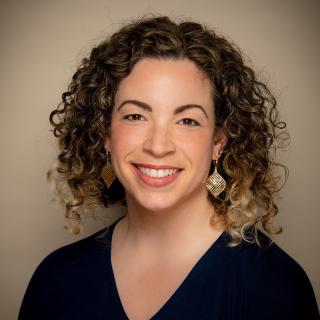
Friday morning I attended a publishing party for the cutest writers on earth, inside my youngest daughter’s kindergarten class.
On the way over to the school though, I was worried. Although bright and clever, my daughter has her own mind about things and has recently been taking her sweet time about her work — or not completing enough of it, her teacher had told us at our recent parent teacher conference. Sometimes she would chat with her neighbor, other times she would get her nose stuck in a book, and other times she would just drift off in daydream and would have to be brought back to her task with a reminder.
The night before the publishing party (organized to celebrate the kids’ creations in a language-and-literacy part of the curriculum called writer’s workshop), I asked my daughter what she’d be presenting.
She told me she had only completed half of one story. The other kids, she said, had all written three stories each.
After she was in bed, I emailed her teacher, full of concern. “Is T paying attention?” I wrote. “Has she been focusing any more than before? We want to make sure she’s progressing.”
Would my little girl fall behind, I wondered? Would she develop bad habits … daydream too much and finish too little? The other kids had written three stories — what had she been busy doing while her friends wrote three whole stories?
These were the thoughts in my head as I walked into the school.
When I wound my way through the crowd of other parents and found my daughter at her table, though, there was a treasure trove of creation spread out before her: Pages and pages of carefully drawn animals, starring in clever and cute stories about ballerinas and forest adventures.
A pink-eared squirrel peeked out from a hole in a deluxe tree house complete with ladders and monkey bars.
A one-page comic showed a precisely colored blue mommy and daddy bird with bright yellow beaks, protecting a nest of three eggs. Another frame of the comic showed three tiny baby birds waiting, open-mouthed for worms, and then another showed the growing birds leaving the nest.
“What’s this?” I asked, pointing to a story with multiple, adorable grey animals in different sizes and poses near a shelter marked “kave.”
“The life cycle of a squirrel,” she said, all cool.
I beamed with a mother’s pride, not just for my daughter but for every single one of those 26 kids, as they showed off their work. I was proud of the little boy who offered a detailed story about zombies and magic, and of the girl who showed off her imagined world of soaring multicolored mountains adorned with fat hearts.
And I was so proud of my 5-year-old daughter, who was too shy to present her stories with a microphone to the crowd but who, I could tell, had put her whole little heart and soul into them.
And then, when I left the cocoon of that magical kindergarten room, I heard about the terror-filled morning in another classroom, in another corner of the country, where beautiful children who wrote creative stories and colored marvelous pictures and had just hugged their parents goodbye were no longer alive.
WHY? I wanted to scream, and scream I did for a moment, alone in my car between meetings. Why them? Why THAT? WHY????????????
I wanted to run back to the school and grab both my children. I wanted to call up the district office and say to whoever answered the phone, “I’m pulling my children out. They will be home-schooled with me, forever. I will hardly let them leave our house, and then they will be safe.” I wanted to bolt all the doors and throw all the guns in our country into the Grand Canyon where we could blow them up for good. I wanted to strangle anyone who dared to utter that awful saying, “guns don’t kill people; people kill people.”
I don’t give a damn which it is. Children shouldn’t die.
But I didn’t run to school and pull my kids out, for fear of being irrational or of alarming them. Instead my mind flipped, inexplicably, back to my daughter’s stories, her flying squirrels and birds with matching beaks and tiny black cats and swirly handwriting. I went over in my mind the pictures I had seen in her class: the hearts and rainbows, mountains and zombies, the little stick figure in an oval bathtub, the tale of a little girl who had visited her Popo and Oma’s farm and hid, mischievously, behind the cows.
Later that Friday evening, our eldest daughter would be off at a ballet show rehearsal, practicing her craft. And my husband and I and our kindergartener would be alone, the three of us, for a rare couple of hours. We parked near the theater district, downtown, and took our time roaming around the large public square among the museums and outdoor statues.
We watched the ice skaters glide by on a freshly cleaned rink. We saw the public fountain rise above the giant, lit-up Christmas tree. We watched our girl refuse the majority of the balanced dinner we bought her and let her suck endlessly instead on her chocolate milk, not caring enough this day to count out warnings or force healthy food.
Outside, T climbed on board a bronze orca statue, howling in the moonlight, her breath excited white bursts on the wind.
She clambered atop a three-foot-tall concrete ball, and instead of saying, “Be careful honey, get down, we need to go,” I let her balance and, slowly, to stand.
“Spread your arms,” I told her. “And say, ‘I’m queen of the world.’”
“I’m queen of the world,” she whispered.
Her dad and I smiled. “Louder!” I said.
“I’m queen of the world,” she shouted, and threw her head back toward the clouds and stars.
When it was time to collect our 7-year-old, L, I was feeling anxious at having been away from her all evening. Something made it seem urgent that the four of us stay close. We picked her up and drove through the dark to home, ushering the tired kids into their beds.
I kissed them each an extra time and breathed in the soft, sweet-smelling curves of their cheeks.
“You are the perfect mommy,” my daughter whispered to me as her eyelids fell, a glorious thing she had never before said, and I kissed her again.
Not perfect enough, though, I thought as I pulled her covers tight.
Not perfect enough to protect them from the terrible things that happen, that happened that morning to the children in another corner of the country whose mommies were, no doubt, perfect, too.

In between school drop-offs and coffee binges, Natalie Singer-Velush is ParentMap’s Web Editor. In her former life she wrote for newspapers around the West, including The Seattle Times. Natalie lives in Seattle with her husband and two school-aged daughters. She wishes she could understand, but she can't.











